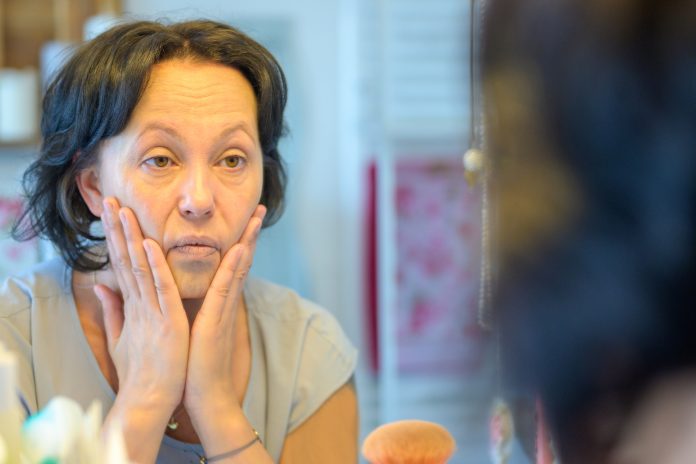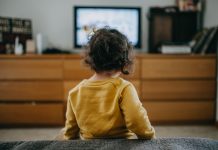Dr Deborah Lee, Dr Fox Online Pharmacy, explores the effects that sleep deprivation can have on your skin
Since the start of the COVID pandemic, according to a recent survey (June 2020) –
- 57% say we are sleeping less well
- 67% say we slept better before the pandemic
- 98% of us say our sleeping habits have changed
What consequences does this have, not just for our physical and mental health, but for our skin?
- How does sleep deprivation affect your skin?
- Can increasing amounts of sleep deprivation worsen these effects?
- Can you restore your sleep debt?
Not getting enough sleep in an emergency
I like to think of not getting enough sleep – as an emergency. Here’s why –
- There is a mountain of evidence that sleep deprivation has a significant effect on health. The Sleep Foundation firmly recommend that UK adults get 7-9 hours of sleep per night. This is a clear health recommendation that should be taken seriously by us including medical practitioners.
- Sleep deprivation increases the risk of chronic diseases such as hypertension, obesity, diabetes, cardiovascular disease, depression, and cancer. Driving while feeling drowsy also increases the risk of road traffic accidents. Our lack of sleep is related to an overall increase in mortality.
- Sleep deprivation causes cognitive impairment. Just one night of lost sleep imp[airs performance to the same degree as having a blood alcohol of 0.10% – which is above the legal limit to drive.
- The skin is the largest organ of the body. We could not exist without properly functioning skin – it helps regulate body temperature, protects the body from invasion by infecting organisms, and plays a vital role in metabolism and the immune response. Hair and nails are modifications of our skin, both containing large amounts of collagen.
- The major component of skin is collagen – a matrix protein that gives the skin a form of scaffolding. Sleep deprivation may affect the production of collagen, resulting in a break down in the barrier function of the skin and mucous membranes. Sleep deprivation also lowers the immune response. This seems to be a key factor as the immune response may affect the production of collagen.
Effects of sleep deprivation on your skin
As sleep deprivation increases, the effects on the skin become more pronounced.
Those who get 3 hours sleep per night
A 2020 Korean study set out to determine the skin characteristics that result from long term sleep deprivation. 32 women in their 40’s were recruited. They slept 8-hours per night for 6 nights, then 4-hours per night for 6 nights.
Even after the first day of sleep deprivation, their skin showed evidence of dehydration. These included a reduction in skin gloss and increased signs of desquamation. The skin appeared less transparent, with marked loss of elasticity, and aggravation of wrinkles. As time passed, the effects of dehydration were seen to increase. The investigators commented the most striking finding was the pronounced effect of sleep restriction on the loss of elasticity.
In one 2017 Swedish study, the study investigators set out to examine the effects of sleep restriction on facial appearance and social desirability. 25 women aged 18-47 years, were recruited. They underwent 8-hours sleep for 2 nights, followed by 4-hours sleep for 2 nights, and were photographed before and after. The photographs were then rated by 122 members of the general public – known as ‘raters’ – for how much they felt they would like to socialise with them.
The results demonstrated that in those who had been sleep-restricted, the raters scored them with less social appeal – meaning the desire to socialise with them was reduced. The raters also scored the sleep-deprived group as less attractive, less healthy, and looking sleepier.
The authors suggested that changes to the appearance after lack of sleep may have significant social consequences. Healthy skin has a slightly reddish colour due to vasodilation and skin vascularisation. The blood supply to the skin is essential to bring nutrients to the skin and for immune defence. After sleep deprivation, the skin appears pale, as blood flow to the skin is reduced.
Skin changes due to sleep deprivation may result in other people being less willing to socialise. Human beings do not react well to social exclusion.
Those who get 5 hours sleep per night
In 2015, the Journal of Clinical and Experimental Dermatology published a paper on how poor sleep affects skin ageing. Sixty healthy women were recruited, and divided into two groups, good quality sleepers – those who regularly slept 8-hours per night, and poor sleepers – who slept 5-hours per night. The health of their skin was assessed using SCINTEXA (TM), a validated tool used in dermatology to assess skin ageing.
Dark circles under the eyes were evaluated. Transepidermal water loss (TEWL) was measured using tape stripping, as a measure of skin barrier function. The skin was exposed to U/V light and resultant redness was then monitored until recovery.
The results were quite dramatic. The good sleepers had lower SCINTEXA (TM) skin ageing scores than the poor sleepers. 72- hours after tape stripping, the good sleepers were seen to have a 30% improvement in barrier function than the poor sleepers. 24-hours after exposure to U/V light, the good sleepers showed a significantly better improvement in skin reddening. Good sleepers were also happier with their appearance and felt more attractive than non-sleepers.
In 2013, a Swedish team of study investigators set out to examine the facial cues that prompt others to recognise someone is suffering from sleep deprivation. Forty observers were asked to rate photographs of people after normal sleep, and 31 hours after a night of sleep restricted to 5-hours.
The observers picked up cues in the faces of those who were sleep-deprived such as hanging eyelids, red eyes, and swollen eyelids. They also commented on darker circles under the eyes, paler skin, and more pronounced wrinkles. The prominence of fine lines and drooping of the mouth were also noted. Those who were sleep-deprived also appeared to look sadder than those who had had enough sleep.
The authors commented that sleep deprivation affected many different aspects of the face – the eyes, mouth, and skin. These regions of the face are important in communication, hence sleep deprivation and tiredness may have important social consequences.
Can you catch up on sleep?
After a period of sleep deprivation, your sleeping habit changes in that you will sleep longer and more deeply. Sleep specialists refer to this as ‘recovery sleep’. Comparatively less research has been done in this area. The effects of not being able to undertake recovery sleep are not well established. All species appear to have a built-in homeostatic sleep pattern.
Sleep is governed by Circadian rhythms. In fact, the need to sleep is viewed as a form of meta-regulation – while you sleep, your body is very active undertaking a range of biological functions from establishing memory, to the biosynthesis of specific molecules, and the clearance of toxic waste. Even those in a vegetative state, have been shown to have sleep-wake cycles.
Participating in meditation has been shown to restore behavioural performance and may reduce the need for sleep, therefore this may a possible tactic if needed, to help substitute for sleep. It is not known if regular meditation could help pay off sleep debt.
How to restore a sleep debt
Below are some key points on how to recover from a sleep debt:
- Take a 20-minute nap – this can refresh your energy levels.
- Plan a lie-in at weekends – take care as this may give you a false sense of recovery on Monday mornings.
- Plan a sleep schedule – make time for sleep. This should not be the last thing you do – give time for sleep a priority. When the mornings are light, try and go to be earlier. Keep the room blacked out and try to stay longer in bed in the mornings if you can.
- Be patient – you can’t fix a long term sleep debt overnight. You need a comfortable bed with a proper mattress, a cool temperature in your bedroom overnight, and a good sleep routine. Winding down for sleep is important. Turn off digital devices an hour or two before bedtime. Avoid caffeine and alcohol 4-6 hours before going to bed. Don’t exercise close to bedtime. Taking regular exercise is important but do this earlier in the day.
- See your GP – Lack of sleep is an emergency. There can be many reasons you are not sleeping. Sleep disorders such as insomnia, obstructive sleep apnea, and restless leg syndrome are common. There may be simple things that can be done to help. Alternatively, you may need a referral to a specialist sleep clinic.
Final thoughts
Getting enough sleep is not an optional extra – it’s an emergency. Yet only 50% of those with insomnia seek help, and when they do, their concerns are often taken seriously.
Sleep deprivation underpins the development of so many chronic diseases and is a fundamental part of our health and wellbeing. The COVID pandemic has exacerbated the nation’s already disturbing sleep problems.
Lack of sleep affects the part of us we present to the world, our face – our eyes, skin, and mouth. Sleep deprivation affects our appearance and the way other human beings react to us.
If only getting enough sleep was recognised as a public health priority. It’s time to appreciate the emergency of sleep.
References
https://pubmed.ncbi.nlm.nih.gov/20678867/#:~:text=Several%20studies%20of%20prolonged%20sleep,stress%20can%20impair%20skin%20integrity.
https://pubmed.ncbi.nlm.nih.gov/31692145/
https://www.ncbi.nlm.nih.gov/pmc/articles/PMC5451790/
https://pubmed.ncbi.nlm.nih.gov/25266053/











